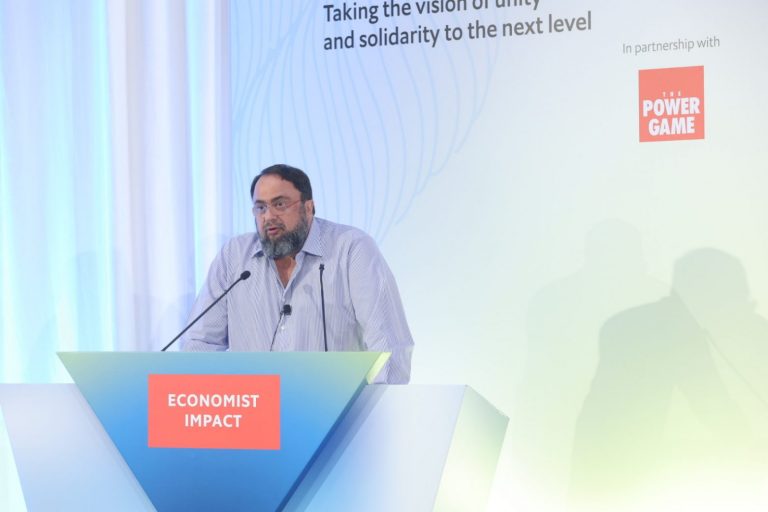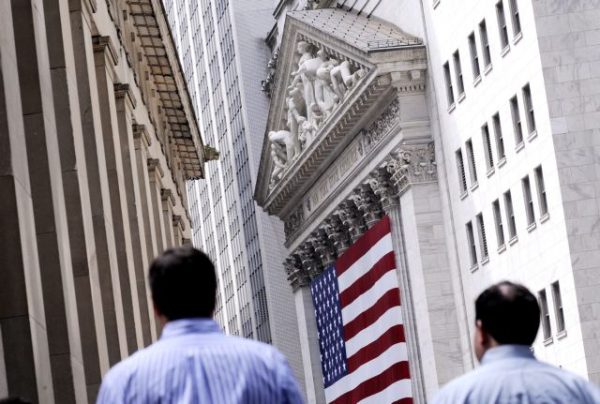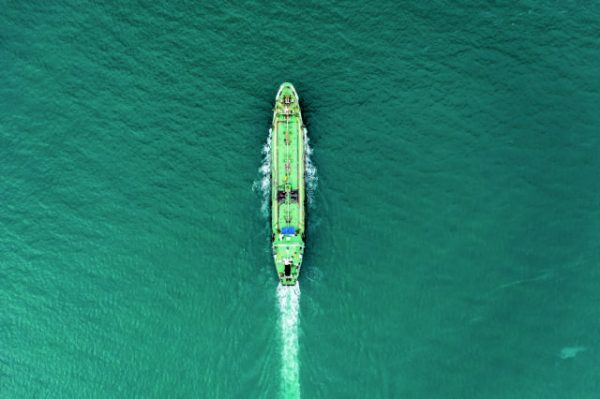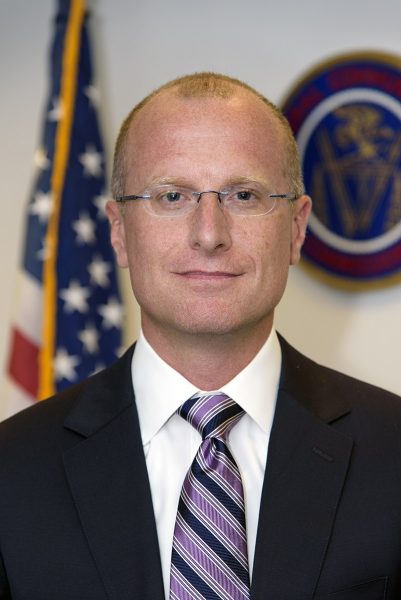
Europe is turning into a theatre of war, as it faces one of its toughest winters, stated Mr Evangelos Marinakis, chairman and founder of Capital Maritime & Trading Corp, during the Economist conference.
Europe can still find solutions to the great challenges it faces on energy security and decarbonisation and the shipping sector is showing the way, Mr. Evangelos Marinakis stated in his speech at the Economist Conference, pointing out that green growth is already happening in the shipping sector, where the general and the financial support of the EU is necessary.
Greek shipping is showing the way, he said, speaking of a green future and the green revolution with Capital Group investments on LNG shipping reaching $3 billion already.
Evangelos Marinakis’ speech:
Europe is facing one of its toughest winters.
The War in Ukraine has been the catalyst that has helped us realize the challenges that we are facing:
-challenges that have to do with collective security, peace and stability and how to deal with the fact that because of Russian aggression, Europe is becoming a theatre of war,
– challenges that have to do with avoiding conditions of energy poverty and social crisis.
– and challenges that have to do with becoming less dependent upon fossil fuels.
And it is true that Europe has shown a lack of preparedness: both in relation to having a strategy to avert aggression and war and in relation to dealing with possible energy crises.
But I do think that Europe can still stand up to the challenges.
Take energy for example. There has been a tremendous effort to replace Russian gas with LNG, after we realized that pipelines from a single provider were becoming a liability, a trap.
That is why we have tried to help as much as possible with the transportation of LNG, even before the disruption of the supply of natural gas caused by the war.
Shipping offers a reliable, flexible and efficient way to transport LNG wherever this is needed and without the geopolitical, technical and environmental problems of large-scale pipeline projects.
And we are proud that Greek shipping is today a leading force in the transportation of LNG.
Almost one out of six LNG carriers being built in the world today will be delivered to Greek shipowners.
Total investment in building new LNGCs by Greek ship-owners is approximately $30 billion, 160 ships in total, a massive investment.
Capital invested more than $3.2 billion in LNGCs over the last four years.
This is how serious we take working towards reducing Europe’s dependence on a single supplier and this is how we enable Europe’s answer to the current energy blackmail by Russia.
Increased investment in LNG infrastructure in Europe is today –and until a new wave of renewable energy projects is in place – the only solution to have a less energy-dependent Europe.
And at the same time this is a step towards a greener future, because we all know that natural gas is the crucial ‘transition fuel’ in any serious effort to decarbonize.
Investing in LNG infrastructure is now a much better solution than returning to increased use of coal and lignite, fossil fuels with significantly worse environmental impact.
But of course the challenge of Green transition is not limited to increased use of natural gas.
The easiest thing would be to come here and say: Shipping is not the biggest contributor to climate change and global warming. It only contributes 3% of greenhouse gases even though it is responsible for 80% of global transport.
But in shipping we do care about climate change.
In particular in Greek shipping!
After all when discussing climate change we are not talking about the distant future.
We are talking about large segments of the planet being uninhabitable by 2050, unless we take urgent action today.
We are talking about areas – including small island nations – being covered by water.
We are talking about mass climate migration.
We are talking of large disruptions in agriculture.
We are talking a global crisis, the biggest that humanity has faced in modernity
Greece is in a position to contribute significantly to climate change as it controls the largest commercial fleet in the world including:
34% of the world oil tanker fleet
24% of the world bulk carriers
19% of the world Liquefied Natural Gas (LNG) carriers
19% of the world chemical & product tankers
11% of the world Liquified Petroleum Gas (LPG) carriers
8% of the world containerships
But with great size also comes great responsibility
There are many in the shipping industry that basically just want to ‘buy more time’. Get more exceptions for shipping. Postpone the transition to Green Shipping.
We should go the opposite direction.
Accelerate the Green Revolution that Shipping needs.
By increased research on low to zero-carbon fuels, from biofuel-blended marine fuel to the research on ammonia fuel cells.
By increased investment in exhaust cleaning systems and all forms of sustainable shipping.
By making sustainability an integral part of shipping.
In Capital we have taken all possible steps to be part of the Green Revolution in Shipping:
– Capital is currently participating in a major European Commission Research shipping project, ShipFC, examining the conversion of an offshore vessel to run on ammonia-powered fuel cell.
– Capital and Lloyd’s Register (LR) trial the use of biofuels in a new pilot project to support the maritime industry’s research for low to zero-carbon fuels in line with the IMO’s greenhouse gas (GHG) emissions reduction targets. The trial will test biofuel-blended marine fuel on Capital managed 300k DWT crude tanker, Apollonas.
– Capital participates in a group of leading companies in maritime transportation investigating the realities of using ammonia (NH3) as a marine fuel, focused on the safety issues that need to be addressed led by Bureau Veritas Solutions Marine & Offshore.
– Capital is a member of the Clean Shipping Alliance 2020, which aims to support and educate on the use and effectiveness of Exhaust Gas Cleaning Systems in order to help achieve shared environmental and sustainability initiatives in the commercial shipping and cruise industries.
These are just some examples that point to how serious we take the challenge of decarbonization and fighting climate change.
And we are willing to invest even more resources to that direction.
However, the transition to Green Shipping is something that needs support and the mobilization of resources. It is important the European Union supports even more this transition by funding research and also funding new investment. It is important that the banking sector prioritizes financing Green Shipping projects. It is imperative that the regulatory framework of global shipping functions as an incentive to move towards sustainable and environmentally friendly forms of shipping. And of course this also creates many high-skill new jobs.
And this is a way for Europe to prove that it can turn its supposed weakness, namely the fact that it lacks fossil fuel reserves that other areas have, into strength.
The future of the globe does not belong to autocracies funding wars by taking advantage on our continuing dependence upon fossil fuels.
It belongs to democracies investing in cleaner greener technologies, accelerating the Green Transition and finding ways to collectively design a sustainable future.
Shipping is at the heart of global trade. It is the complex lifeline that makes sure that goods arrive, that countries can export, that societies can prosper, that people can free themselves from poverty. It is the basic material infrastructure of globalization. It represents the greatest part of the supply chains that sustain our way of life.
And if until now it has been part of the problem of Global Warming and of a pending climate disaster, now it has the chance to be part of the solution!
Latest News

German Ambassador to Greece Talks Ukraine, Rise of Far Right & Tariffs at Delphi Economic Forum X
Commenting on the political developments in his country, the German Ambassador stressed that it was clear the rapid formation of a new government was imperative, as the expectations across Europe showed.

Athens to Return Confiscated License Plates Ahead of Easter Holiday
Cases involving court orders will also be excluded from this measure.

Servicers: How More Properties Could Enter the Greek Market
Buying or renting a home is out of reach for many in Greece. Servicers propose faster processes and incentives to boost property supply and ease the housing crisis.

Greek Easter 2025: Price Hikes on Lamb, Eggs & Sweets
According to the Greek Consumers’ Institute, hosting an Easter dinner for eight now costs approximately €361.95 — an increase of €11 compared to 2024.

FM Gerapetritis Calls for Unified EU Response to Global Crises at EU Council
"Europe is navigating through unprecedented crises — wars, humanitarian disasters, climate emergencies," he stated.

Holy Week Store Hours in Greece
Retail stores across Greece are now operating on extended holiday hours for Holy Week, following their Sunday opening on April 13. The move aims to accommodate consumers ahead of Easter, but merchants remain cautious amid sluggish market activity.

Green Getaway Ideas for Easter 2025 in Greece
Celebrate Easter 2025 in Greece the sustainable way with eco-farms, car-free islands, and family-friendly getaways rooted in nature and tradition.

Civil Protection Minister Details Summer Firefighting Plans at Delphi Forum
At the 10th Delphi Economic Forum, Minister of Climate Crisis and Civil Protection Yiannis Kefalogiannis discussed Greece's plans for the upcoming fire season.

How Shops and Markets Will Operate During Easter Holy Week
The Easter holiday schedule has been in effect since April 10, with retail stores open Palm Sunday, and most supermarkets also operating to meet consumer demand for Easter shopping

Why Is the French Aircraft Carrier Charles De Gaulle in Piraeus?
Docking in Piraeus after a four-month deployment in the Indo-Pacific region, the admiral of the aircraft carrier the Charles de Gaulle says, "Greece is our best partner in the Mediterranean."








































 Αριθμός Πιστοποίησης
Αριθμός Πιστοποίησης